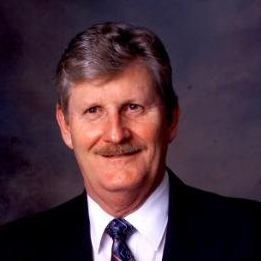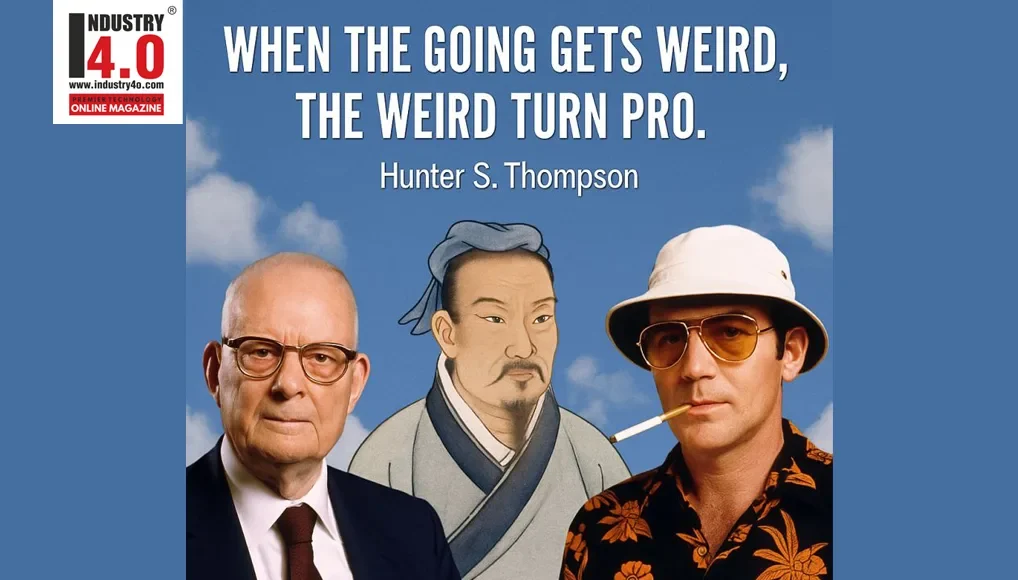The Art of Being Weird
Chaos is the natural state of the universe – or at least it feels that way when you’re living in the 21st century. Between corporate dysfunction, political circus acts, and technological revolutions, it’s hard to find footing. But fear not. Three giants of philosophy – Dr. W. Edwards Deming, Sun Tzu, and Hunter S. Thompson – offers us a playbook for surviving (and thriving) in the weird, wild world we find ourselves in.

Step One: Understand the System (Dr. Deming)
Dr. Deming taught us that “If you can’t describe what you are doing as a process, you don’t know what you’re doing.” The man who revolutionized quality management believed that chaos could only be managed by understanding the systems at play.
In today’s world, where supply chains stretch across continents and “process improvement” is often just jargon in a PowerPoint deck, Deming’s teachings are a call to action. Map the madness. Understand the variables. And above all, measure everything -but not just for the sake of measuring. Measure to improve.
Hunter would agree. In his gonzo journalism, Thompson didn’t just dive into chaos; he immersed himself so fully that he became a part of the system he was analyzing. Whether it was the Hell’s Angels or Nixon’s campaign trail, he understood that to truly capture the madness, you had to first understand its inner workings.
Step Two: Leverage Chaos (Sun Tzu)
“In the midst of chaos, there is also an opportunity,” wrote Sun Tzu in “The Art of War.” For the ancient strategist, chaos wasn’t something to fear; it was something to exploit.
If Deming teaches us to analyze chaos, Sun Tzu teaches us to weaponize it. While your competitors flail in confusion, you can use the disarray to strike where they least expect it. Call it strategic weirdness: blending conventional wisdom with unconventional tactics.
Hunter would again nod in approval. His life was one long exercise in weaponizing the unexpected. Who else but Thompson could turn a simple trip to Las Vegas into a metaphorical war zone? Who else could weave such poetic absurdity into a political takedown?
Step Three: Embrace the Weird (Hunter S. Thompson)
And finally, we arrive at Thompson’s immortal words: “When the going gets weird, the weird turn pro.” If Deming offers structure and Sun Tzu provides strategy, Thompson gives us the courage to embrace the absurd.
Life is weird. Work is weird. People are the weirdest of all. Thompson’s philosophy reminds us that when the world loses its grip on normalcy, the outliers are the ones who thrive. But thriving isn’t just about survival—it’s about leaning into your quirks and using them to your advantage.
Consider Deming’s relentless focus on continuous improvement. It wasn’t mainstream when he started. And Sun Tzu? He wrote a book on war, but it’s taught in business schools now. These were weird ideas in their time, just as Hunter’s gonzo journalism defied every norm of traditional reporting.
BobRutherford
About the Author :
 Mr. Bob Rutherford
Mr. Bob Rutherford
President – Rutherford & Company
New Technology Committee Chairman – Technology & Maintenance Council, American Trucking Association
Mr. Bob Rutherford is a 50-year veteran of the trucking industry, his contributions to the industry have been recognized by being awarded the American Trucking Association / Technology & Maintenance Council’s (TMC) Silver Spark Plug for technical excellence and the Recognized Associate Award for supporting the organization’s membership committee. He is also an Ambassador for the EnergyandMobility.org Conference.
Everyday there seems to be an article about autonomous vehicles. Autonomous trucks are interesting to me from both a business standpoint and a human being standpoint. Digging deeper into autonomous trucks lead to learning about artificial intelligence, which lead to machine learning which lead to deep learning.
Mr. Bob Rutherford can be contacted at :
Also read Mr. Bob Rutherford‘s earlier article:












